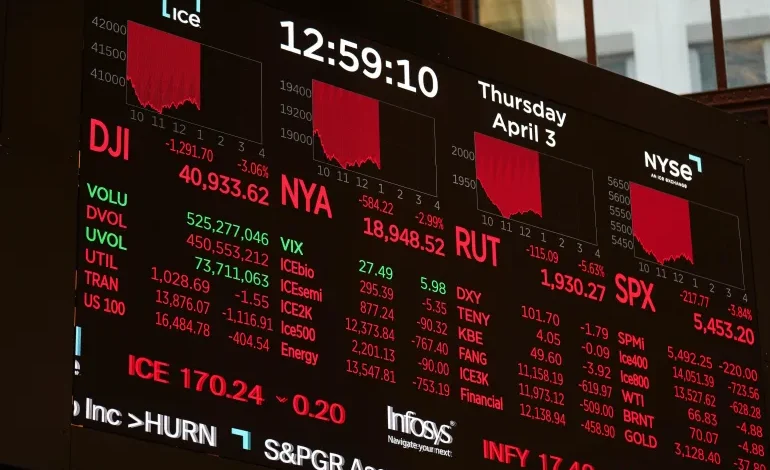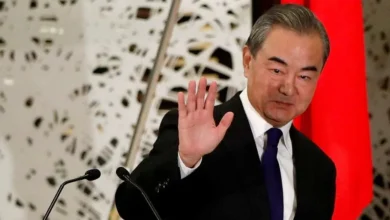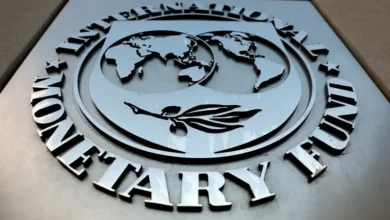Global markets swoon as Trump heads to the golf course

Two days after sending the economy reeling by announcing widespread tariffs, United States President Donald Trump headed to play golf at Mar-a-Lago, his private club in Palm Beach, Florida, even as the sell-off for financial markets worldwide is slamming into a higher, scarier gear.
Before heading to his private golf course, Trump wrote on social media: “THIS IS A GREAT TIME TO GET RICH.”Investors are not buying that message.
The S&P 500 tumbled 5.7 percent as Wall Street’s worst crisis since the COVID pandemic crash deepened after China matched Trump’s big rise in tariffs announced earlier this week. The move increases the stakes in a trade war that could end with a recession that hurts everyone. Not even a better-than-expected report on the US job market, which is usually the economic highlight of each month, was enough to stop the slide.
The Dow Jones Industrial Average plunged 2,034 points, or 5 percent, and the Nasdaq composite was 5.6 percent lower, with an hour remaining in trading.So far, there have been few, if any, winners in financial markets from the trade war. European stocks dropped roughly 5 percent. The price of crude oil tumbled to its lowest level since 2021. Other basic building blocks for economic growth, such as copper, also saw prices slide on worries the trade war will weaken the global economy.
The central question looking ahead is: Will the trade war cause a global recession? If it does, stock prices will likely need to come down even more than they have already. The S&P 500 is down roughly 17 percent from its record set in February.
Investors do not expect volatility to subside quickly.
“Until there’s actually a change in the policy or evidence of real negotiations going on, the market’s going to be under pressure,” said Kathy Jones, chief fixed income strategist at the Schwab Center for Financial Research in New York.
Adding to market fears on Friday were comments from Federal Reserve Chair Jerome Powell, who said that the tariffs were “significantly larger than expected” and are “highly likely” to cause more inflation – at least in the short term but possibly in the long term as well.










